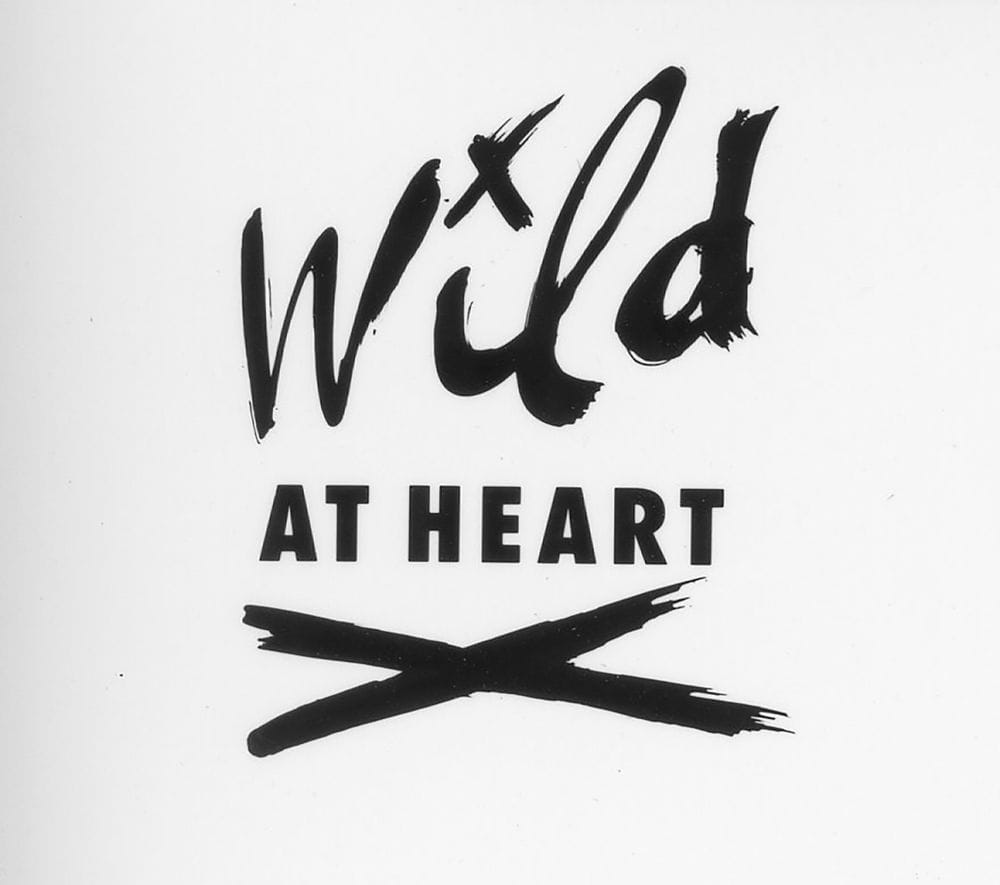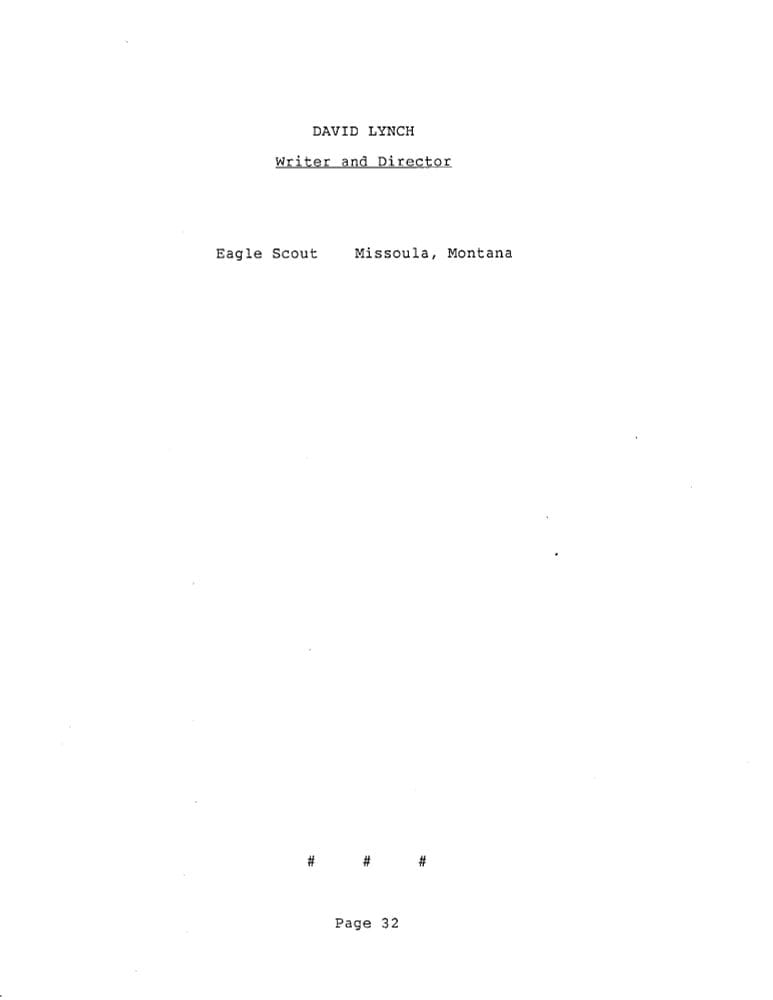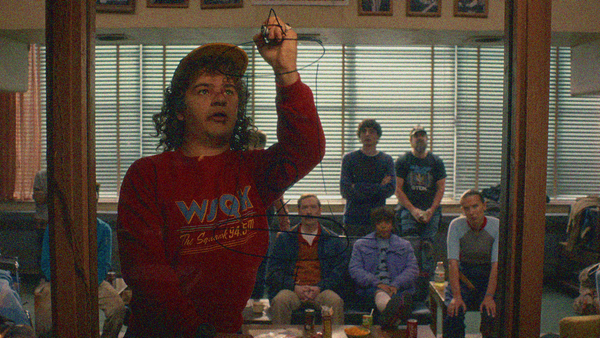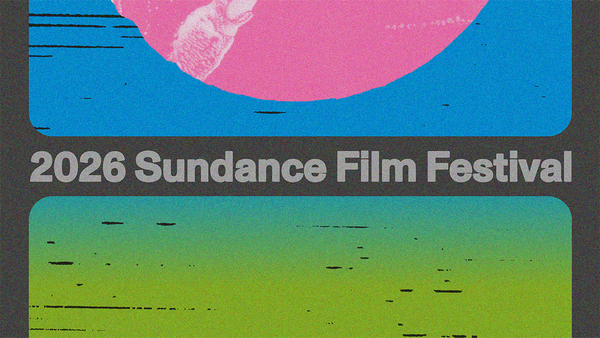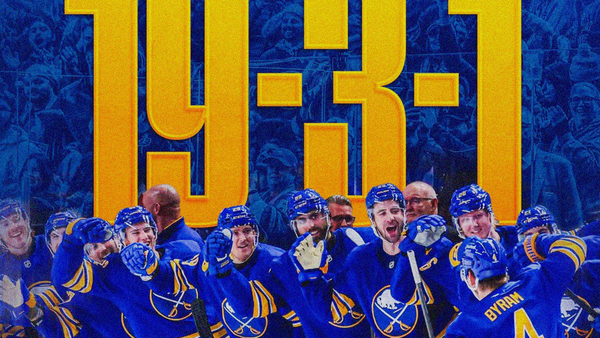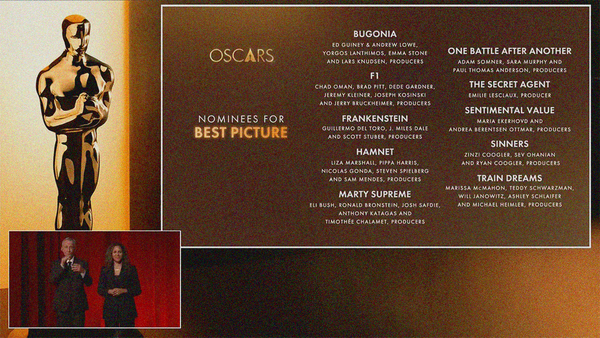Week Ending 9/19/25
Make Me Famous
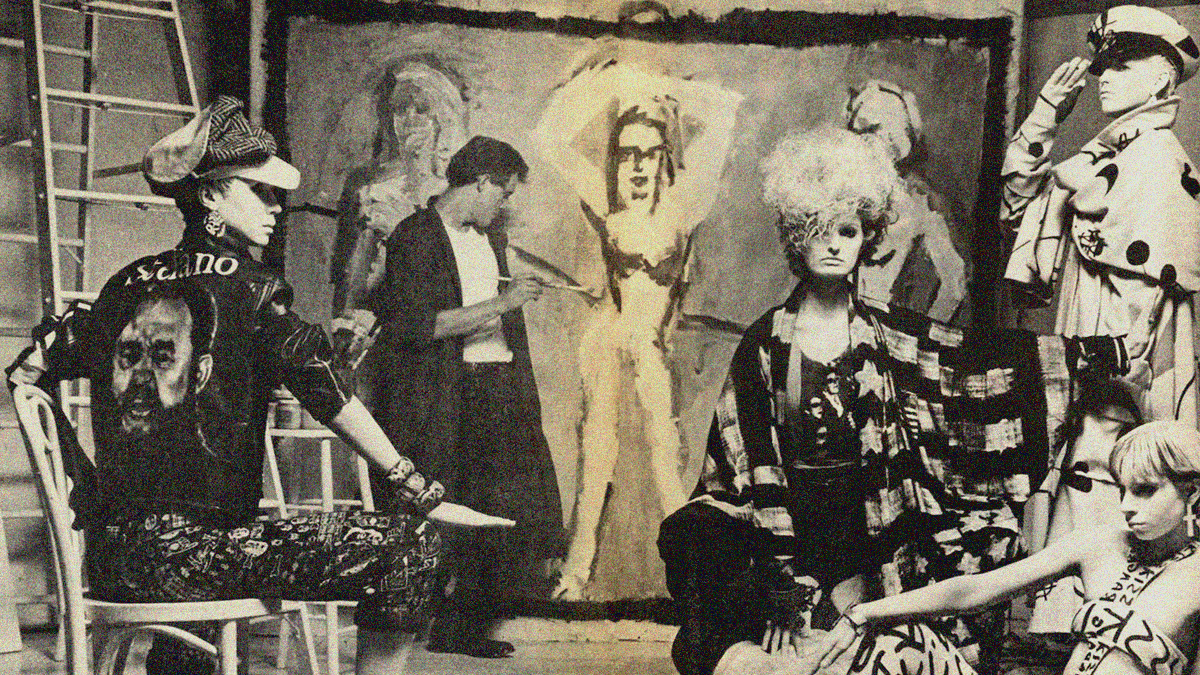
My intrigue in the 1980s art scene of NYC's East Village began after watching Julian Schnabel's Basquiat twenty odd years ago and wondering why Vincent Gallo was just sitting in the background of a party scene. I eventually learned Benicio Del Toro's role in that film was an amalgam of Gallo and another friend of the titular artist—another Buffalo/NYC overlap added to my knowledge of Hallwalls' 1970s origin including figures like Cindy Sherman and Robert Longo.
That very institution will be hosting a screening next week on 9/24 of a documentary film about another painter from the era: Edward Brezinski. Directed by Brian Vincent and produced by Heather Spore, Make Me Famous is described in the gallery's listing as follows ...
A vibrant, fast-paced portrait of New York City’s explosive 1980s Downtown art scene—where punk met paint, and the lines between art, music, and nightlife blurred. This was the world that launched Jean-Michel Basquiat, Keith Haring, Madonna, and Blondie—a cultural moment defined by its grit, glamour, and DIY ethos.
Amid the chaos was painter Edward Brezinski, a figure both present and peripheral, whose story offers a unique window into the era’s creative frenzy. More than a portrait of an artist, Make Me Famous captures a time and place where the dream of making it felt just within reach—and heartbreakingly out of grasp.
The film has been making the rounds on a touring distribution model that's taken it to fifty-five cities so far. Buffalo's Hallwalls screening begins at 7:00pm. Tickets are $10 general admission, $6 for students, and $5 for members. The trailer can be found here.
I sadly couldn't prescreen due to TIFF obligations, but I should have a review up in next week's issue.

Another End
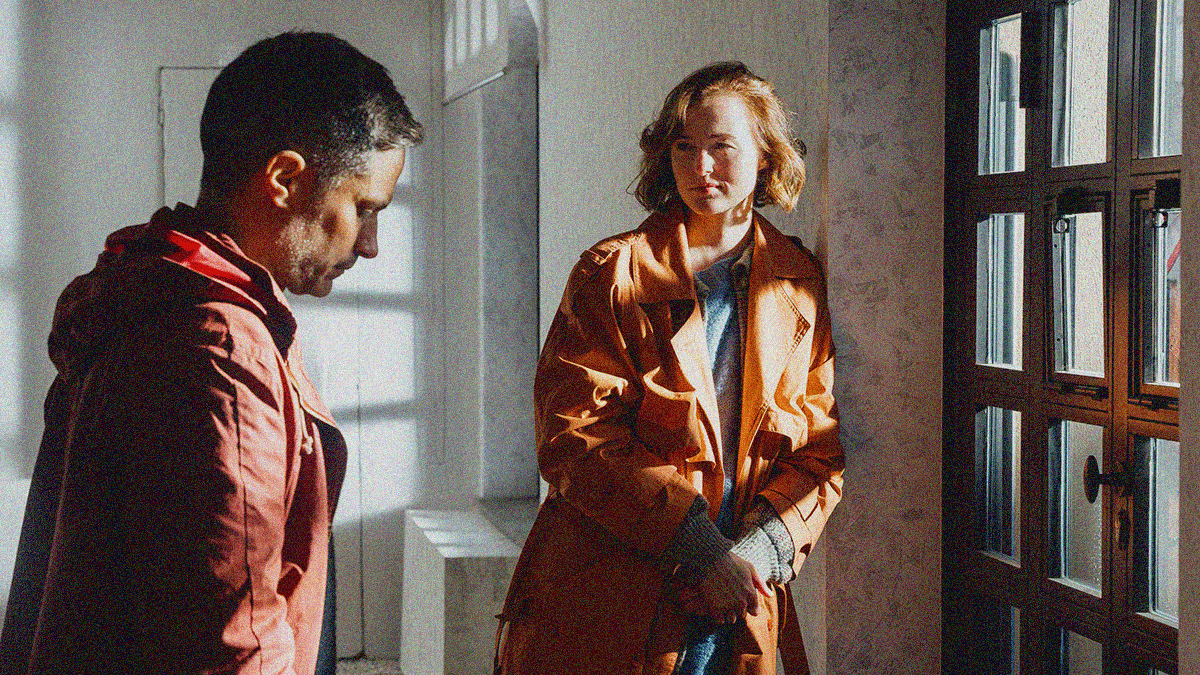
Within the universe of Another End, the titular product serves as a therapeutic tool to overcome the sudden grief of a loved one. Its technology downloads a deceased person's memories (think Omar Naim's full-life videos from The Final Cut) and feeds them into a compatible (age, gender, etc.) host to be resuscitated in order for the living to better prepare a proper goodbye. The simulant will not process that anything is amiss unless someone else triggers them to look close enough to discover the person in the mirror isn't actually them.
Director Piero Messina and his team of co-writers (Giacomo Bendotti, Valentina Gaddi, and Sebastiano Melloni) do a really great job bolstering this implausibility by having Dr. Doyle (Pal Aron) use an optical illusion as a guide. Just as we cannot see the duck and rabbit or "My Wife" and "Mother-in-law" simultaneously in their respective ambiguous images due to the multi-stable perception phenomenon, having the deceased unknowingly awaken within a foreign body allows them to presume it's theirs. If everyone reinforces the lie, there's no cause to question it.
Sal (Gael García Bernal) wants nothing to do with the technology—mainly because he blames himself for Zoe's death since he was at the wheel when the fatal accident occurred. Not only does he refuse to face her memories, however, but he also wishes he would have died too. His sister Ebe (Bérénice Bejo) has pretty much been on suicide watch as a result despite working for the company that facilitates the Another End program. So, in a last-ditch effort for him to cope, she asks Zoe's parents to bring her back instead.
Enter Ava (Renate Reinsve), their assigned host. The plan is to stage an ambulance ride wherein Sal's presence manipulates "Zoe" into believing they both survived the crash. Then she can be awoken again as though from a coma to explain the time loss. Both he and her parents (Angela Bain's Clara and Philip Rosch's Ben) will acclimate to her return, steel themselves to the loss, and share a joint "ritual" of telling her the truth and grieving together. The idea is that some therapy on the back end will hopefully bring them back to life themselves.
Intelligent concept or not, though, you can probably see the problem straight away: What about the people who don't want to say goodbye? The company obviously has rules to prevent such cases by strictly adhering to contracted time frames (for the host's safety to not absorb the memories into their own and the client to not fall harder into their denial), but Sal has an inside man to push the boundaries. It's here where we see his true self. The selfishness and coercion. Everything "Zoe" describes when they fight on day one.
It's more of why Sal blames himself. Not just for the accident, but for constantly pushing off the things they wanted. Marriage, kids, etc. He says they didn't have time, but it was really just him. So, getting this second chance inevitably causes his mind to wander to what could have been. To aggressively push to keep the illusion going. And, worse yet, to find the real Ava and attempt to build a relationship capable of keeping Zoe close—albeit in a deranged way. The key is then to ensure we understand Sal is wrong while also empathizing with him.
The filmmakers do a fantastic job toeing that line with a mix of truly wholesome moments (Zoe's father agrees because his wife asked, but the moment his anger thaws to longing is quite unforgettable) and equally tragic revelations to better align the parties to appreciate each other's pain. It's a small role, but Olivia Williams' Juliette does a lot of work legitimizing the science fiction as a mirror to Sal's hopes and mistakes with the process too. Add Ava's own backstory and every bit of exposition goes towards cementing an authenticity of emotion.
Because things get real very fast. Sal's do-over almost course-corrects too well to become everything he should have been seemingly overnight from "Zoe's" perspective. Ava's parallel psychology to Sal helping them both move forward if not for the lie of omission that they didn't meet by chance. And even the debate at Another End where Ebe and Doyle confront the reality of their product and the worthwhile conversation of morality getting in the way of its true capabilities. Not for evil or profit, but for anguish-driven avoidance.
While Bejo and Williams are great in their plot specific purposes, Another End is ultimately a two-hander (with a "third wheel") between García Bernal and Reinsve. Blurred intentions, deceit, and love entangle their characters in a genuinely moving yet impossible union—the fake one and the real one. It's a Band-Aid. A crutch. But that realization might also save them from their sorrow. That Messina delivers this truth (and one final discovery I should have seen coming) is a testament to the script's success and cast's resonant performances.
8/10
Chain Reactions
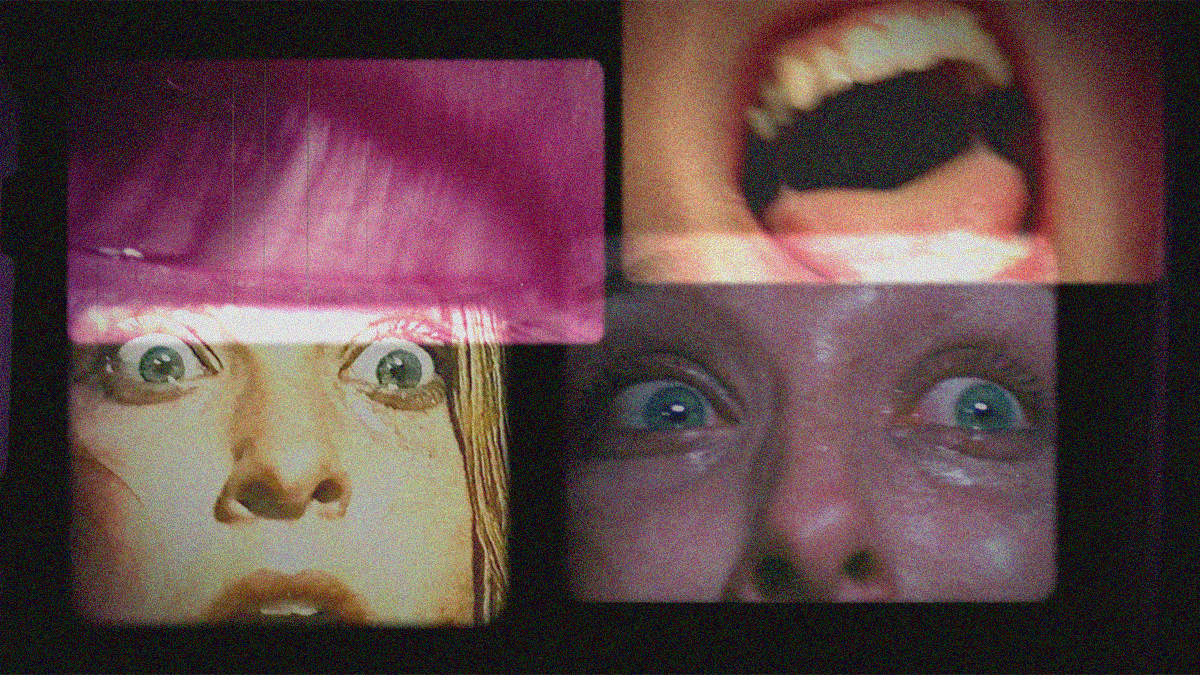
Tobe Hooper's The Texas Chain Saw Massacre is a film that leaves an indelible mark upon viewers when watching for the first time. You can't help but be changed by its singular artistry and bold fearlessness to take us into Hell with no hope for escape ... if you're brave enough to watch until the end. It's not therefore surprising that Alexandre O. Philippe could collect five subjects to talk in-depth about its impact on their careers and sensibilities. Nor that they would all come at it from a different direction depending on their own lives at the time.
Look no further than Takashi Miike explaining how he never liked horror films. A recollection of youth or not, that's a wild statement coming from the creator of Ichi the Killer and Audition. He traveled forty minutes to Osaka to see Charlie Chaplin's City Lights only to be turned away (it sold out). So, fifteen-year-old Miike stumbled upon Leatherface instead to ensure the trip wasn't wasted. The rest is history as it instantly ignited a career in genre filmmaking to the point where he admits he probably wouldn't be a director if not for the experience.
Chain Reaction is split into five chapters as Philippe stacks interviews from Patton Oswalt, Miike, author/film critic Alexandra Heller-Nicholas, Stephen King, and Karen Kusama atop each other. Oswalt might seem like the odd man out, so the first clip shown of an old stand-up routine declaring The Texas Chain Saw Massacre the "perfect film title" sets the stage for his fandom. What follows is the comedian's insightful, almost encyclopedic knowledge of the horror classic complete with an intriguing angle about the sun making the world go mad.
That sentiment is mirrored by Kusama to form a bookended notion of prescience where it concerns an America off the reservation. I love her thoughts about the Sawyer family being a people whose livelihood was taken from them and the inevitability of that tragic circumstance driving them insane. Because it's what's happened to red state republicans forever living in a past consumed by progress that they refuse to evolve with as a means of survival. They've made the void their personality instead, turning their violent rage into their occupation.
King's insight is pretty much where you'd expect it to be as far as aligning with the artist's job to ignore morality when in the process of creation. He explains how art is meant to provoke and spark conversation. That independent filmmaking—by virtue of being freed from studio oversight trying to homogenize for mainstream profitability—is crucial to pushing the form forward into new realms of possibilities. It's up to the ratings boards and critics to say whether a work has gone too far, not the creator (save thoughts on his own novel Rage).
Similar to Miike's contributions, Heller-Nicholas's chapter is more personal to her than social, political, or artistic meaning to the pop culture zeitgeist. It's one of the more fascinating bits from a technological standpoint too considering she grew up in Australia—a country that denied The Texas Chain Saw Massacre from being released for a decade. So, her first watch was on a washed out and yellow VHS copy of an already inferior print that aligned with her country's own aesthetic sensibilities, blurring the line between intent and necessity.
The whole is very inside baseball insofar as its goals and merits go, so definitely know going in that your knowledge and appreciation of Hooper's film and cinema in general is crucial to the academic (albeit anecdotal) exercise Philippe has put together. His ability to splice relevant clips (mostly mentioned by the interviewees, but sometimes included on his own impulse) from Nosferatu, Wake in Fright, House, and others is impeccable. And the shifts from high definition to grainy celluloid to mangled VHS for Massacre's own clips and outtakes is great.
My favorite part, however, is the thoughtful commentary on Leatherface himself from all participants. His anxiety and child-like instincts are perhaps an easy thing to recognize for fans, but it's a nuance that people who never watched the film and only know of the character as a chainsaw-wielding monster would never think to consider. Heller-Nicholas says it best: "It's a home invasion movie from Leatherface's point of view." He's working through a trauma response as those he's been taught to fear threaten his sanctuary.
It reveals how our worst monsters are often the ones we understand. Those we could feasibly become ourselves under specific circumstances. But you must remember that sympathizing with the reasons they lost their humanity doesn't excuse their actions. You must still condemn them while seeking ways to fix the cause. You can pity a MAGA supporter for their inability to comprehend reality and want to destroy the mechanisms (conservative media disinformation) that drove them insane, but don't forget their words and deeds remain purely evil.
7/10
London Calling
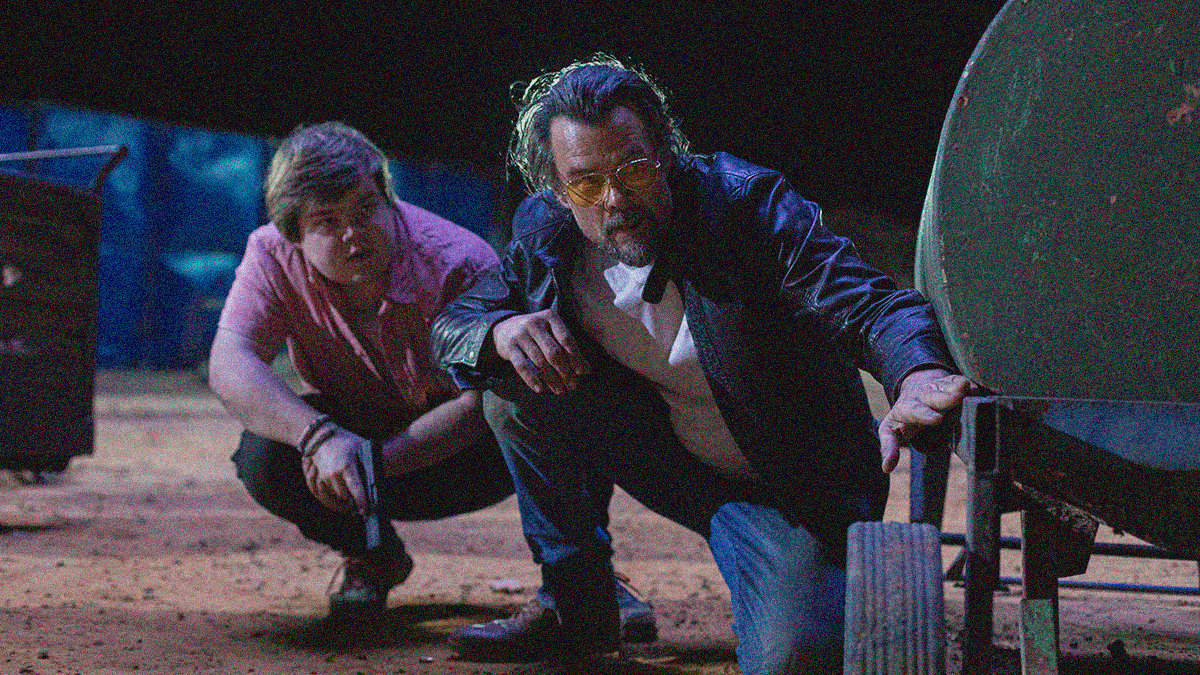
Tommy Ward (Josh Duhamel) is a hitman. Some might even say the best in London. Well, maybe that he was the best in London. He's crested fifty now and his eyesight is failing, but the stubborn machismo that ultimately forced his ex-wife to divorce him and take sole custody of their son has him refusing to admit this very simple truth. Because he might still be the best if he just got glasses. It's 2025, after all. Is the stigma so extreme that he'd risk his own life to avoid someone calling him "four-eyes"?
Sure, director Allan Ungar and his co-writers Omer Levin Menekse and Quinn Wolfe would have you believe that the message at the back of London Calling is confronting your mortality with humility, but I'm not sure they needed such an ableist conceit to get there. And to those throwing their arms in the air to say I don't have a sense of humor ... I had a very fun time with this film. It's enjoyable, heartfelt, and nicely acted. I probably wouldn't have even mentioned that bit of ablism if not for the really bad case of hinging an entire scene on the R-word.
It's not just a slip to comment on a character being a jerk either. It's genuinely used as a joke about the mentally disabled and is exacerbated as the sequence continues. This isn't a period piece. I wasn't being facetious about it being 2025 outside the movie. It's 2025 inside the movie. So, what's really going on here? Give Tommy a hand tremor due to a guilty conscience instead. It wouldn't ruin the narrative comedy that works well, and no one would miss the one-dimensional "we're not PC" comedy that doesn't.
How do I know this? Because Tommy still isn't wearing glasses during the final battle. He has been called out on his vanity and even uses corrective lens for a previous fight to discover they do make a huge difference and give him back all the confidence and power he's missed the past year. To let Tommy have that reaction and then never confront it for the rest of the film is all the proof you need to know his humility wasn't the point. It was always for the gag. Beyond realizing he wants to be a good father, Tommy doesn't evolve one bit.
As I said before, however, it's still entertaining. Duhamel is too charismatic a "tough guy" for it not to be. Get him to do one last job before returning to England from exile in Los Angeles (he accidentally killed a family member by marriage of his boss, played by Aidan Gillen, and thus had to flee) by forcing him to babysit his new boss's (Rick Hoffman's Benson) LARP-loving nerd of a teen son Julian (Jeremy Ray Taylor) and the situational comedy writes itself. Tommy gets a trial run at fatherhood and Julian learns what a real dad is.
Are these lessons happening while they hunt down a mark? You bet. Does it help that said mark is a former assassin with an ungodly kill count? Not really. This isn't John Wick insofar as being a mythologized world only populated by killers, but it takes place within a corresponding reality-based sector to prevent murder from being a sign of evil. It's merely a way of life. Heck, it's not even a big enough sin for Alistair Mcrory (Neil Sandilands) to know an assassin will be going to Hell upon death. No, you must commit suicide to guarantee that trip.
Julian isn't even surprised his dad makes a living as a crime boss paying people to kill enemies. It's the family business and this little ride along is Benson's last-ditch effort to know whether that legacy will die with him or get passed on. Does Julian want to follow in those footsteps? He never really says. Nor does the film care since the whole ordeal demands shallowness for laughs. Because it is legitimately funny to realize Benson wants his son to be a stone-cold killer yet never even took him shooting. It's hilarious that Fortnite made him a crack shot anyway.
But again, that revelation doesn't go anywhere. It's another missed narrative opportunity like the glasses since Tommy should be letting the kid shoot for him after discovering he can't miss. Julian instead only provides cover fire. It makes absolutely zero sense. That's the name of the game, though, when cheap entertainment trumps good storytelling. It's merely a shame that filmmakers don't realize you can do both because I think London Calling is a perfect premise to prove it if only Ungar and company went the extra step.
5/10
The Summer Book
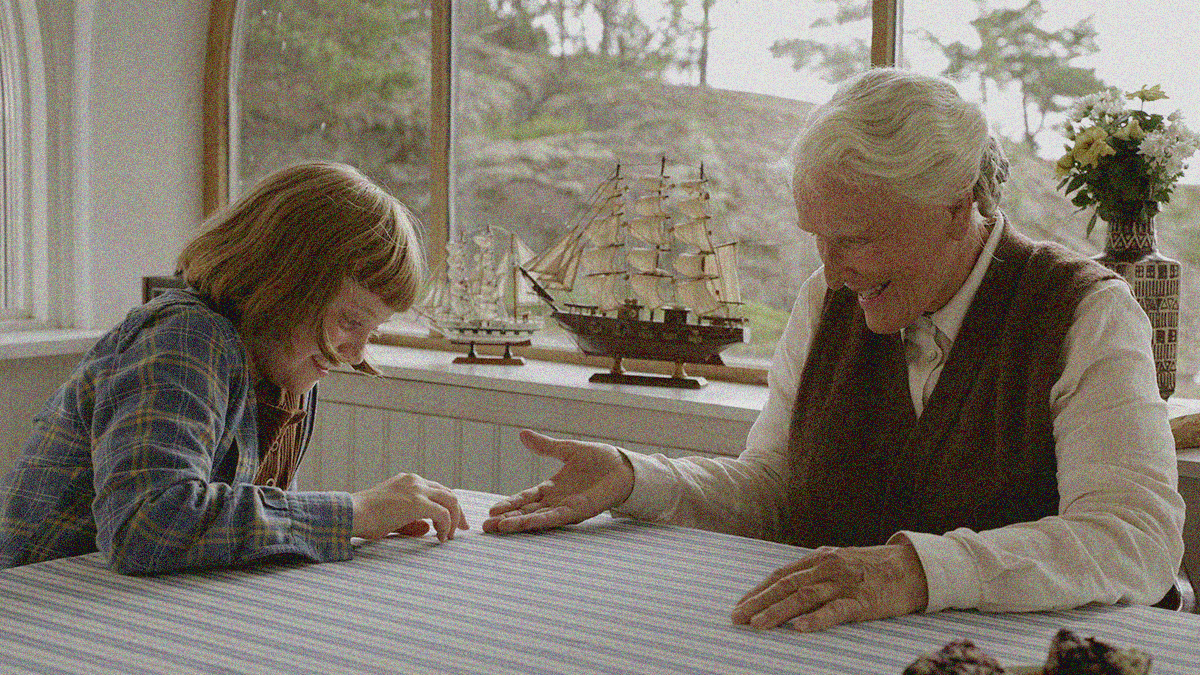
It's the first summer since Sophia's (Emily Matthews) mother passed away, but she, her father (Anders Danielsen Lie), and grandmother (Glenn Close) are still going to try and keep their Midsommar tradition alive. Their cabin resides on an uninhabited island within a Gulf of Finland archipelago that's been a family vacation destination for decades. Grandmother has been coming for almost fifty years and the thought is that maintaining this consistency will be good for the child's grief. She also hopes it might wake her son up from his.
Adapted by Robert Jones from the novel by Tove Jansson, director Charlie McDowell's The Summer Book begins as this trio comes ashore. They seem a happy bunch with Sophia's excitement masking the reality of her mother's absence until Father (her and Grandmother don't receive names) is stopped in his tracks by what we presume was his late wife's sun hat. All she wants to do is play and prepare for adventures while he sets up his drawing desk to complete work assignments instead. So, it isn't long before Sophia realizes she's alone.
Not fully considering Grandmother's presence, but she can barely move around the rocks and moss even with the support of her cane. She must, though, because her son's self-pity causes him to be absent during the day. Grandmother would love to get some time alone to read her book and relax, but Sophia needs stimulation and it falls on her to provide it—at least until she can hopefully nudge Father into acknowledging that his actions and attitude are only exacerbating an already untenable situation.
The film is therefore mostly Sophia and Grandmother engaged in conversations that inevitably find themselves flirting with the idea of mortality despite never literally mentioning the girl's dead mother. It's the fear of accidentally cutting a worm in half or praying for a storm to save her from boredom only to have one arrive and threaten the safety of Father. Grandmother does her best to keep up, but age is constantly rearing its head to frustrate her. She's losing memories and desperate to make new ones.
McDowell's leisurely pace allows us to float around them as their days compound. A couple other characters pop up to break the monotony (Ingvar Sigurdsson's Eriksson bringing fireworks, a younger couple played by Pekka Strang and Sophia Heikkilä showing the old ways aren't fully dead, and a new black cat), but the bulk of the time is spent on the main trio's island in quiet introspection. Swimming. Planting a poplar tree in Mother's memory. Drawing stories. Camping in a tent. Enjoying a bonfire.
Its ultimate message is that Sophia shouldn't blame herself for tragedies outside of her control and Father should be there to assure her of that fact before any other responsibilities he may have. Grandmother is therefore doing her best to hang-on long enough for him to realize this because she knows Sophia will be lost if it doesn't happen before her own death. It's why she's always nudging him to talk to his daughter and refusing to let him hide behind his sorrow as though he's the only one in pain.
The Summer Book is a sweet yarn about love that isn't afraid to let its heavy emotions breathe. While that's great for its impact to land once they finally face what they've been avoiding, it also leads the whole to drag for a lot of its runtime. I love the idea of letting the truth be found in quiet moments and the contrasting evolution of interactions, but it's tough to really latch onto anything when that's the entirety of what we're given. When the breaking point does arrive, it too quietly simmers back to a dulcet hum. Nothing to see. Problem solved.
I must also question the "book" considering it's manifested as an end of summer gift that feels extremely contradictory. Yes, it's a wonderful keepsake showing how much Father loves Sophia. And yes, she absolutely adores it. But when you think about its construction, you can't shake the reality that its creation hinged upon him ignoring her this whole vacation. At best, it's a misguided act since Father would have been better off playing with her instead. At worst, it's a product of his guilt repurposing his art in an attempt to save face.
Perhaps it's better explained in the source material or I'm reading too much into it, but that's what happens when you leave so much unspoken. I have no choice but to interpret everything and Father's epiphany cannot exist in a vacuum away from the rest since the melancholy of his actions and beauty of his gift are inextricably connected. It's a minor quibble of structure and cause and effect, though. Nothing that ruins the overall essence of the journey or effectiveness of the performances. Just proof that less isn't always more.
6/10

Opening Buffalo-area theaters 9/19/25 -
• 731 at Regal Transit
• Afterburn at Dipson Capitol; Regal Elmwood, Transit, Galleria, Quaker
• A Big Bold Beautiful Journey at Dipson Amherst, Flix, Capitol; AMC Maple Ridge, Market Arcade; Regal Elmwood, Transit, Galleria, Quaker
• Face Off 8: Embrace of Light at Regal Galleria
• Him at Dipson Flix, Capitol; AMC Maple Ridge, Market Arcade; Regal Elmwood, Transit, Galleria, Quaker
• The History of Sound at Regal Transit, Galleria, Quaker
• In Whose Name? at Regal Transit, Galleria, Quaker
• Jolly LLB 3 at Regal Elmwood
• Kiss at Regal Elmwood
• London Calling at Regal Quaker
Thoughts are above.
• Megadoc at Regal Quaker
• The Senior at Dipson Capitol; AMC Maple Ridge, Market Arcade; Regal Elmwood, Transit, Galleria, Quaker
• Vash Level 2 at Regal Elmwood
• Waltzing with Brando at Regal Quaker
• XENO at Regal Transit, Galleria, Quaker
Streaming from 9/19/25 -
• Night of the Reaper (Shudder) - 9/19
• She Said Maybe (Netflix) - 9/19
• Superman (HBO Max) - 9/19
• Swiped (Hulu) - 9/19
• 28 Years Later (Netflix) - 9/20
• Valiant One (Hulu) - 9/23
• Ballerina (Starz) - 9/25
• The Surfer (Hulu) - 9/25
"The Surfer is about torturing Nic Cage until all pretense evaporates to leave his purely primal instincts in charge. Sell [his] soul for the dreams society indoctrinated him to achieve or realize no "reward" is worth relinquishing his humanity." – Full thoughts at HHYS.
Now on VOD/Digital HD -
• Americana (9/16)
• Bad Shabbos (9/16)
"Credit the filmmakers too for never holding piety above the absurdity of the premise. The goal is to show how much this family loves each other, but that shouldn’t erase the fact they can still also be bad people." – Full thoughts at HHYS.
• Don't Let's Go to the Dogs Tonight (9/16)
• Griffin in Summer (9/16)
• Just Breathe (9/16)
• The Knife (9/16)
"There’s no more damning look into the dangers of American systemic racism than a scenario where the victims of that cruelty are so aware of it that their attempts to survive seal a worse fate." – Full thoughts at HHYS.
• Ne Zha II (9/16)
• Pictures of Ghosts (9/16)
"It's an essay film about his life and career as much as a document of a city. It's an ode to art, ephemera, and metamorphosis." – Full thoughts at HHYS.
• Relay (9/16)
"The first half hits hard with Ahmed delivering a mostly wordless performance en route to setting everything up so it can inevitably fall apart. I only wish the [generic] third act didn't ultimately leave the quieter, cerebral intrigue behind." – Full thoughts at The Film Stage.
• Secret Mall Apartment (9/16)
• Souleymane's Story (9/16)
• Witchboard (9/16)
• American Sweatshop (9/19)
• Another End (9/19)
Thoughts are above.
• Compulsion (9/19)
• Eden (9/19)
• Prisoner of War (9/19)

Pieces from the Wild at Heart (1990) press kit.
